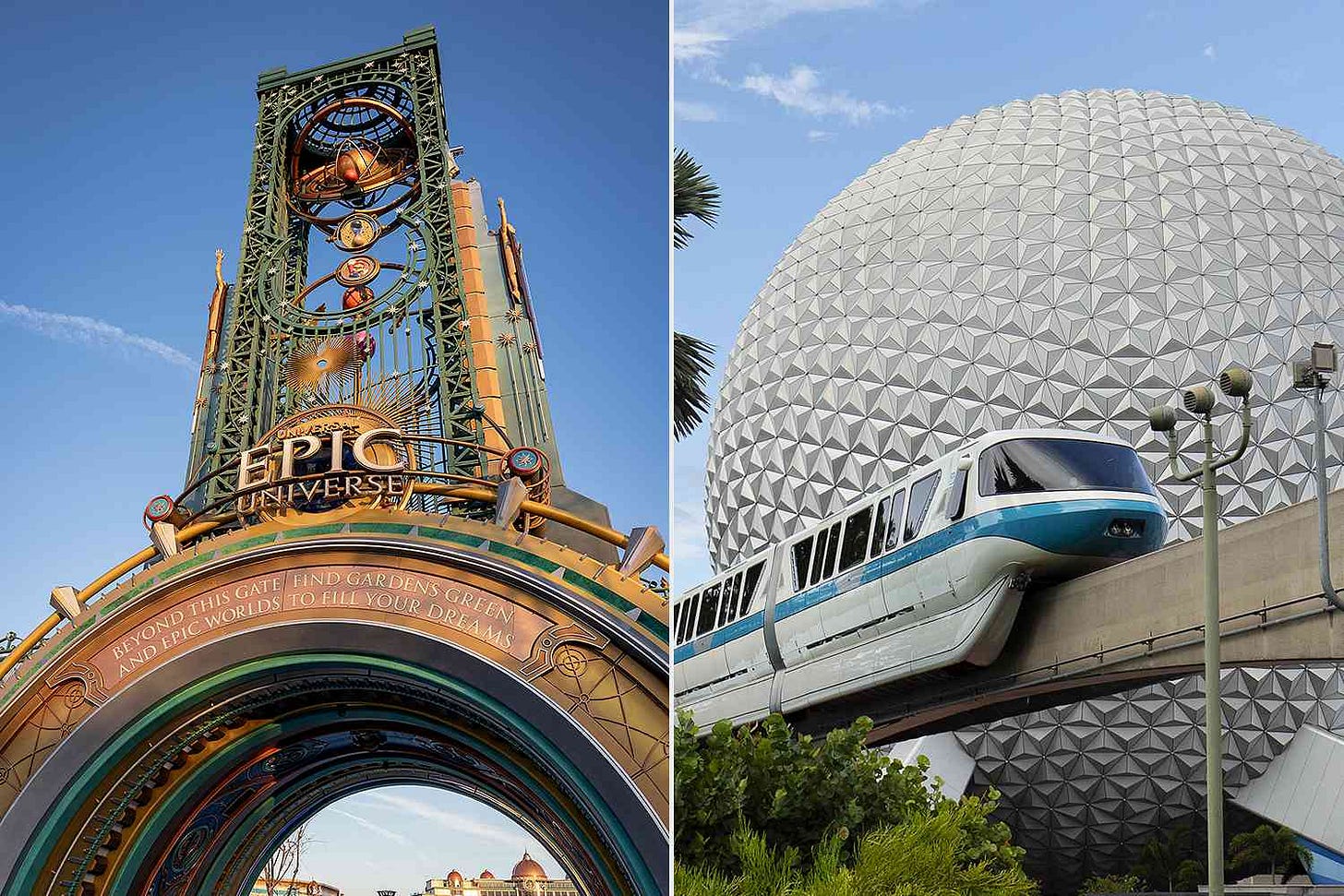Disney Denies Being on Defensive Against Epic Universe, Vows to Stay on the "Offensive"
Disney Parks Chairman Josh D'Amaro directly addressed the new competition, stating that Disney's long-term investment strategy prevents them from ever being in a "defensive position."
ORLANDO, FL – In the face of the most significant competitive threat to its theme park empire in a generation, The Walt Disney Company is forcefully pushing back on the narrative that it is on its heels. At a recent investor conference, Disney Parks Chairman Josh D'Amaro explicitly denied that the company is in a "defensive position" against Universal's new Epic Universe park, framing Disney's multi-billion-dollar expansion plans as a continuation of a long-term "offensive" strategy.
The opening of Epic Universe has undeniably changed the Orlando tourism landscape, intensifying the rivalry between Disney and Universal. However, speaking at the MoffettNathanson 2025 Media, Internet & Communications Conference, D'Amaro was resolute in his position that Disney does not react to competitors, but rather sets the pace.
"If we just go back 5 or 10 years and you think about what's happened at Walt Disney World, we've always been on the offensive. You'll never find us in a defensive position," D'Amaro stated, outlining a strategy of continuous investment.
He directly addressed the impact of Universal's new park, making it clear that Disney views the competition as a benefit to the entire region, one that will ultimately drive more visitors to their own gates.
"What that all means is if something is built new in Central Florida, like Epic Universe, and if it brings in additional tourists, I can almost guarantee you that the new tourists coming into the market [are] going to have to visit the Magic Kingdom," D'Amaro said.
He argued that the sheer number of new, high-profile attractions at Disney's four parks—such as Tron: Lightcycle/Run, Star Wars: Galaxy's Edge, and Guardians of the Galaxy: Cosmic Rewind—creates an ecosystem that new visitors cannot ignore.
"They're not going to miss Star Wars at Hollywood Studios. They're absolutely getting on Guardians of the Galaxy at Epcot," he added, reinforcing that Disney's strategy is to fortify its existing parks rather than build a new one.
D'Amaro also pushed back against the idea that Epic Universe would "cannibalize" Disney's attendance, citing internal data as proof their strategy is working.
"Based on our results, based on the forward bookings, that cannibalization is not coming from us," he asserted. "And so again, we have a very solid strategy in place, always on the offensive."
That offensive is backed by a massive capital investment plan that will see the company spend tens of billions of dollars on its domestic theme parks over the next decade. D'Amaro presented this not as a reaction to Universal's new park, but as the continuation of a long-standing philosophy.
"I can just take a walk around the parks and tell you what's happened," D'Amaro said, listing the major additions to each of the four parks. "My point is that we're constantly investing for the long term. Fortifying each one of our theme parks to make sure that our destination stays together as a whole."
For Disney, the message to competitors and investors is clear: while a new universe has opened down the street, they are confident that their own kingdom is, and will remain, the center of the tourism galaxy.
The theme park landscape is changing faster than ever, and the battle between Disney and Universal is just getting started. If you enjoyed this level of in-depth coverage and want to stay ahead of the curve with breaking news, insider insights, and honest reporting on everything happening in Orlando and beyond, click the button to subscribe. Don't miss the next big story.



